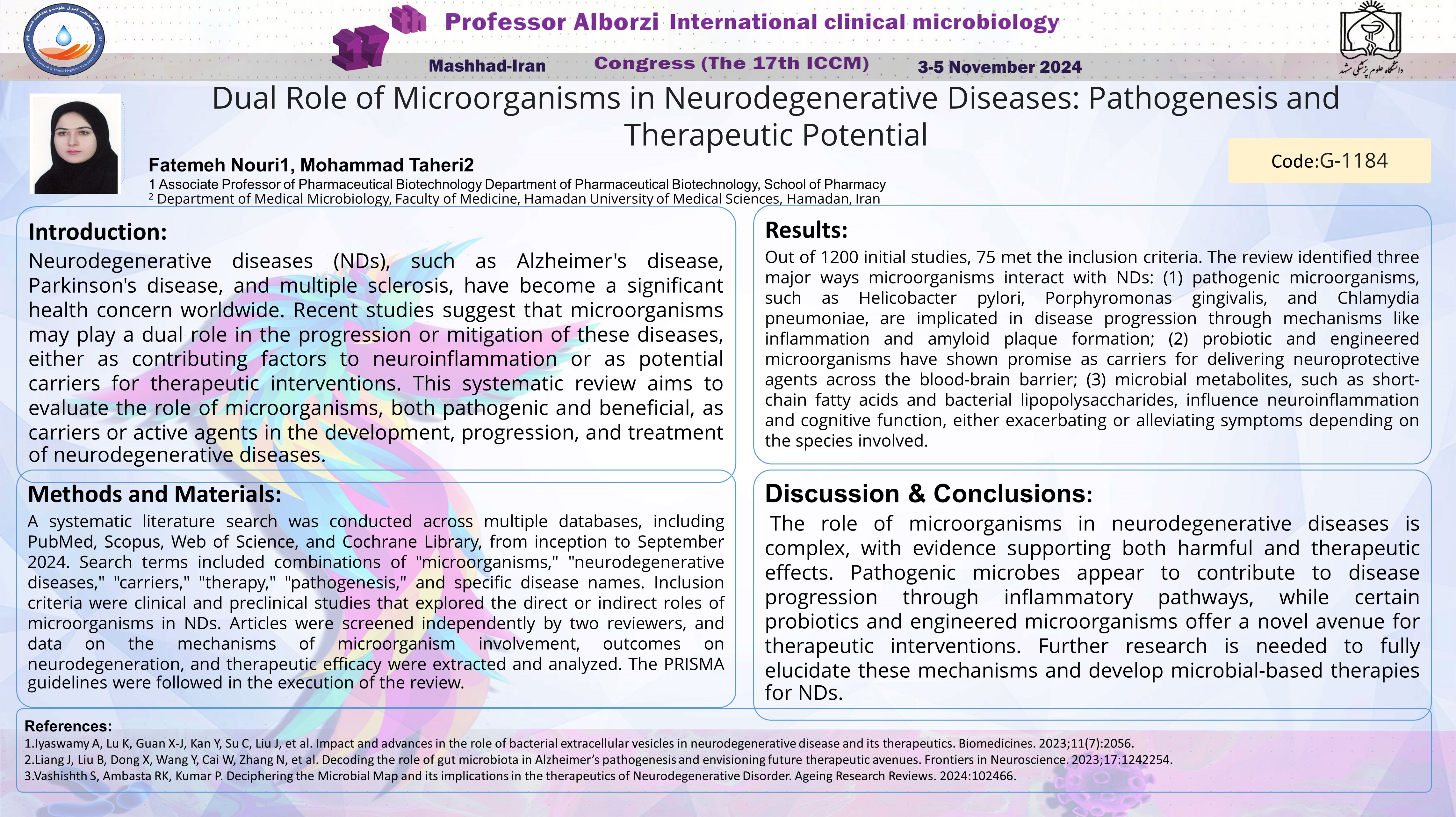نقش دوگانه میکروارگانیسمها در بیماریهای نورودژنراتیو: پاتوژنز و پتانسیل درمانی
کد: G-1184
نویسندگان: فاطمه نوری © ℗, محمد طاهری
زمان بندی: زمان بندی نشده!
دانلود: دانلود پوستر
خلاصه مقاله:
خلاصه مقاله
Background: Neurodegenerative diseases (NDs), such as Alzheimer's disease, Parkinson's disease, and multiple sclerosis, have become a significant health concern worldwide. Recent studies suggest that microorganisms may play a dual role in the progression or mitigation of these diseases, either as contributing factors to neuroinflammation or as potential carriers for therapeutic interventions. This systematic review aims to evaluate the role of microorganisms, both pathogenic and beneficial, as carriers or active agents in the development, progression, and treatment of neurodegenerative diseases. Methods: A systematic literature search was conducted across multiple databases, including PubMed, Scopus, Web of Science, and Cochrane Library, from inception to September 2024. Search terms included combinations of "microorganisms," "neurodegenerative diseases," "carriers," "therapy," "pathogenesis," and specific disease names. Inclusion criteria were clinical and preclinical studies that explored the direct or indirect roles of microorganisms in NDs. Articles were screened independently by two reviewers, and data on the mechanisms of microorganism involvement, outcomes on neurodegeneration, and therapeutic efficacy were extracted and analyzed. The PRISMA guidelines were followed in the execution of the review. Results: Out of 1200 initial studies, 75 met the inclusion criteria. The review identified three major ways microorganisms interact with NDs: (1) pathogenic microorganisms, such as Helicobacter pylori, Porphyromonas gingivalis, and Chlamydia pneumoniae, are implicated in disease progression through mechanisms like inflammation and amyloid plaque formation; (2) probiotic and engineered microorganisms have shown promise as carriers for delivering neuroprotective agents across the blood-brain barrier; (3) microbial metabolites, such as short-chain fatty acids and bacterial lipopolysaccharides, influence neuroinflammation and cognitive function, either exacerbating or alleviating symptoms depending on the species involved. Conclusions: The role of microorganisms in neurodegenerative diseases is complex, with evidence supporting both harmful and therapeutic effects. Pathogenic microbes appear to contribute to disease progression through inflammatory pathways, while certain probiotics and engineered microorganisms offer a novel avenue for therapeutic interventions. Further research is needed to fully elucidate these mechanisms and develop microbial-based therapies for NDs.
کلمات کلیدی
Neurodegenerative diseases Microorganisms Pathogenesis Therapeutic carriers Alzheimer's disease Parkinson's disease Microbiome
